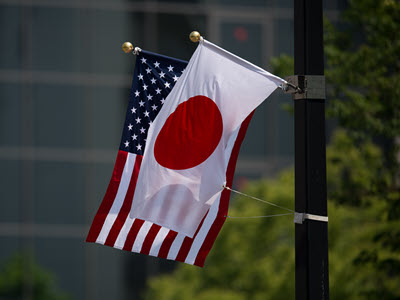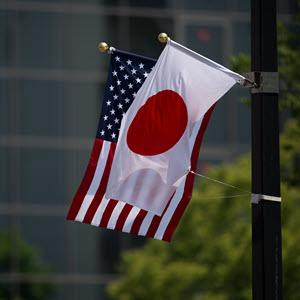Podcast
Enhancing U.S.-Japan Energy System Resilience amid Shifting Geopolitical Tensions
The past two years of tumultuous energy markets have demonstrated that energy security and economic security are inextricably interlinked. With Japan assuming the G-7 presidency and the United States hosting APEC meetings this year, the two countries are well positioned to lead Indo-Pacific engagement on climate change and energy transition efforts that are in line with regional energy security needs.
Building on a roundtable held in Seattle on August 15, 2023, this Asia Insight podcast moderated by NBR nonresident fellow Clare Richardson-Barlow examines the energy security relationship between the United States and Japan. In particular, it considers how each nation is dealing with the current energy crisis and tackling its respective energy transition challenges, and explores how bilateral cooperation on these issues can help address both energy and economic security concerns.
Clare Richardson-Barlow is a Lecturer at the University of Leeds and an interdisciplinary social scientist whose research and teaching explore just transitions, energy policy, political economy, and energy governance.
Ken Koyama is Chief Economist and Senior Managing Director at the Institute of Energy Economics, Japan. Dr. Koyama also is a Visiting Professor at the Graduate School of Public Policy at the University of Tokyo and an Adjunct Professor at the Institute of Innovative Research at the Tokyo Institute of Technology.
Jennifer Sklarew is an Assistant Professor for the Environmental Science and Policy Department at George Mason University and brings 30 years of energy and environmental policymaking and analysis to her research and teaching.
Time Stamps
[00:31] Introduction: Today’s conversation builds upon a roundtable that NBR hosted last month in Seattle alongside the Asia -Pacific Economic Cooperation’s Energy Ministerial Meeting.
[3:09] Dr. Koyama, geopolitics play a large role in energy and economic security. How will current geopolitical tensions between the United States and China reshape the future roles of fossil fuels and renewables within Asia’s energy mix?
[7:23] Dr. Sklarew, Seeing as nuclear will play a bigger role within Japan’s energy mix amidst the ongoing energy crisis and its race towards a net-zero economy, do you see this development as an indicator that nuclear power generation is becoming considerably more palatable to the Japanese government and also the public?
[13:48] Japan’s current nuclear energy makeup is around 8 % of its overall energy mix, but the Japanese government aims to have nuclear power makeup 20%–22% of the country’s energy share by 2030. What are the policy hurdles that Japan must overcome to achieve this goal?
[25:18] How do you see the United States and Japan collaborating on key technologies like nuclear and hydrogen at both the government and local levels?
[33:59] Conclusion: Today’s exploration has shed light on many things, including the pressing geopolitical dynamics shaping the role of fossil fuels and renewables in Asia’s energy mix.
About Asia Insight
The NBR podcast series Asia Insight features interviews with top Asia experts about key issues affecting the Indo-Pacific region, with a focus on implications for U.S. policy and businesses. Subscribe to Asia Insight on Podbean and Apple Podcasts and let us know what you think of the podcast on Twitter.
Media Contact: [email protected] or (202) 347-9767.
Asia Insight theme music is by Laura Schwartz of Bellwether Bayou.
This podcast was edited by Eliana Guterman at NBR.



 Weathering the Storm: U.S.-Japan Leadership in Indo-Pacific Energy Security
Weathering the Storm: U.S.-Japan Leadership in Indo-Pacific Energy Security